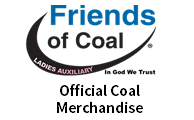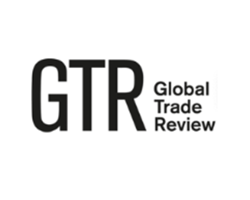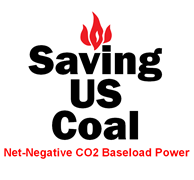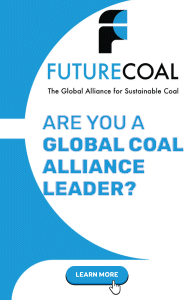
 











|
Signature Sponsor


April 10, 2025 - President Donald Trump has urged the Export-Import Bank of the United States (US Exim) to slash red tape and boost financing for the country’s coal industry, signalling a dramatic departure in White House energy policy. In an executive order signed yesterday, Trump said the US must increase domestic production of coal to bolster national security and meet rising power demand from emerging technologies such as AI. US coal usage has slumped amid a boom in gas and renewable energy development. Coal-burning plants generate less than 20% of US electricity, a marked drop from 50% in 2000, according to the Energy Information Administration. Yet Trump’s executive order says the US has “vast” amounts of coal that can be used domestically and exported overseas. “Our nation’s beautiful clean coal resources will be critical to meeting the rise in electricity demand due to the resurgence of domestic manufacturing and the construction of artificial intelligence data processing centres,” the order said. Federal departments, including those for energy and agriculture, have been enlisted to identify coal reserves and remove impediments to mining them, while also speeding up leasing processes on public lands. State financing agencies including US Exim and the International Development Finance Corporation (DFC) have been directed to open up facilities for coal developers – bucking a long-term trend which has seen European, North American and Asian lenders divest from the sector. Within 30 days, agencies involved in energy financing including US Exim must review their charters, regulations, guidance, policies, international agreements, analytical models and internal bureaucratic processes. They should “ensure that such materials do not discourage the agency from financing coal mining projects and electricity generation projects”, the order says. “Any identified preferences against coal use shall immediately be eliminated,” the order adds. However, it notes any actions have to be consistent with law and are subject to the agency head’s discretion. Climate groups have slammed the move to boost public financing for the most polluting of fossil fuels. “Trump is ordering US Exim and DFC to subsidise the dying coal industry while pretending to be concerned with federal spending,” says Kate DeAngelis, deputy director for economic policy at Friends of the Earth. “This scheme would push the US back into the last century with more Americans dying from the cardio-vascular and respiratory diseases that coal brings. So much for Making America Healthy Again.” Export credit agencies have swung away from coal-fired power projects since 2015, when participants of the OECD Arrangement on Officially Supported Export Credits introduced restrictions on the sector. The move saw members prohibit support for coal power projects unless they used “ultra-supercritical” technology or were smaller plants in the poorest countries. The OECD Arrangement counts several countries as members including the US, UK, Japan, Korea, Australia, Canada and the EU, with their export credit agencies agreeing to adhere to certain rules and conditions. In late 2021, members barred all official export credit and tied aid support for new coal-fired power plants, unless they came equipped with carbon capture and storage technology. Up until then, Japan and Korea had remained active backers of coal development in countries such as Vietnam. It is unclear which US Exim financing programme could help drive a boom in coal mining and power projects. But in a separate executive order issued last month, titled Immediate Measures to Increase American Mineral Production, President Trump touted US Exim’s Make More in America initiative as a potential funding source for domestic mineral projects. In the latest executive order, he clarified that coal should enjoy “all the benefits of a mineral” under the previous order signed March 20. Towards the end of 2024, the Biden administration reportedly backed a proposal to limit export financing for all aspects of fossil fuel supply chains, with the EU, UK and Canada in favour of the move. However, no deal was struck following opposition from South Korea and Turkey, NGO Oil Change International said in a December 20 statement. |
 










|